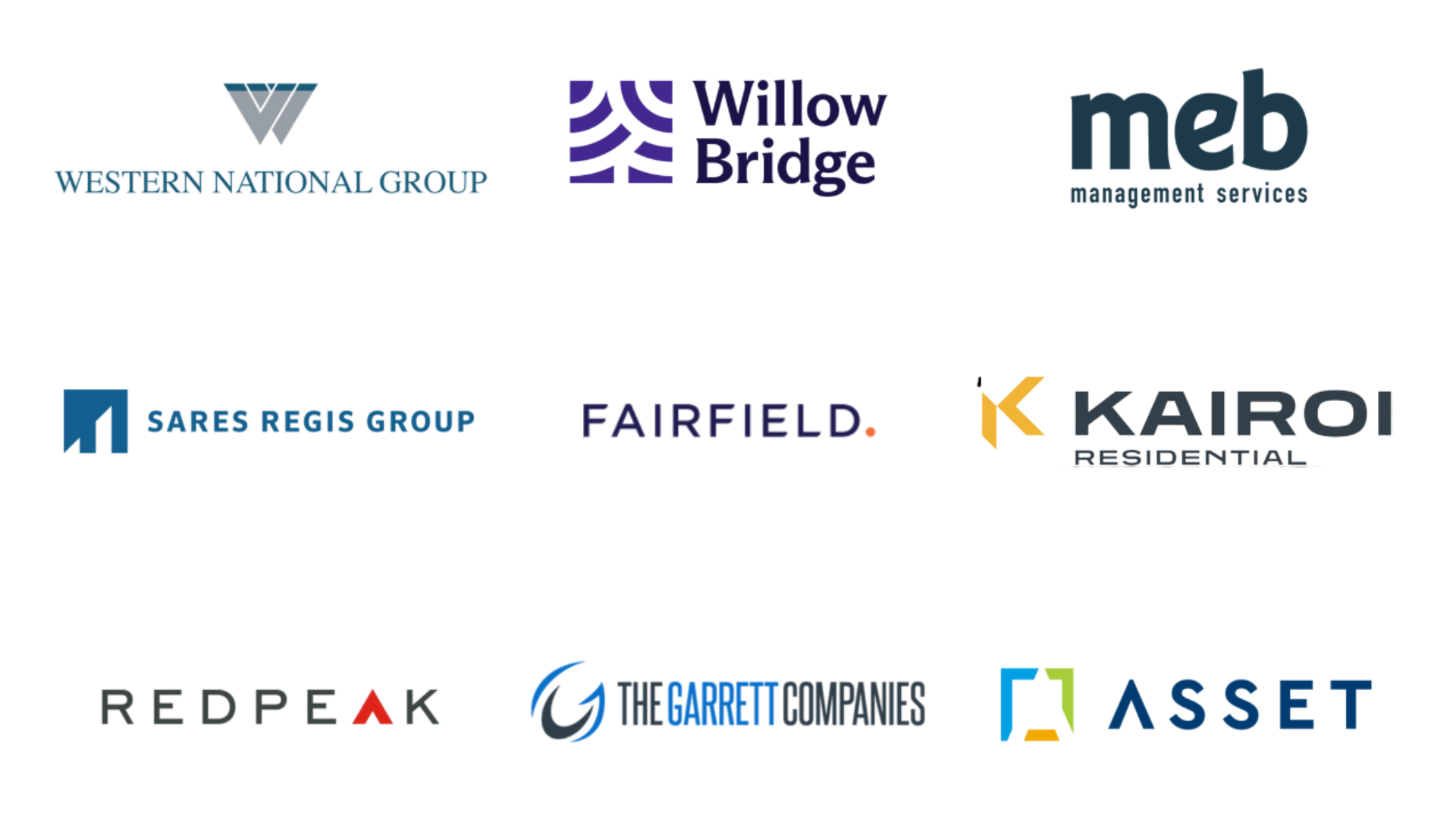Discover how the Multifamily Innovation® Council is revolutionizing the apartment and housing industry by fostering collaboration and innovation. Dive into our latest blog post to explore strategies, trends, and insights that enable professionals to elevate their business, enhance community living, and stay ahead in a competitive market. Join the dialogue on the critical importance of teamwork and inventive practices for sustainable success in the multifamily sector.
C-Suite Strategies: The Multifamily Innovation® Council’s Guide to Profitability
The Multifamily Innovation® Council is for Multifamily Executives who want to drive profitability inside their company. This episode delves into why the Multifamily Innovation® Council isn’t just an Executive level membership organization, but a movement. It fosters weekly dynamic interactions that fuel year-round growth without the constraints of a static, annual events.
In this episode, we shed light on what powers the Multifamily Innovation® Council, revealing how its synergy of high-caliber executives is revolutionizing multifamily practices and pushing boundaries beyond traditional real estate operations. The Council consists of Multifamily CEOs, Presidents, Owners, Investors, Vice Presidents, Chief Technology Officers, Chief Innovation Officers, and more, who are working through issues like multifamily fraud, operational inefficiencies, rising costs, and inflation.
In the fast-paced world of the multifamily industry, executives face an array of complex challenges. From grappling with the swift advancements in AI and technology to the stress of managing cash flow amidst fluctuating interest rates, the hurdles are numerous. Add to this the struggle to find and retain quality employees, navigate new regulations, and meet the high expectations of customers and investors, it becomes a relentless pursuit to stay ahead.
This is where the Multifamily Innovation® Council steps in, offering an executive level membership organization focused on results and collaboration around the topics of Leadership, AI, Technology and Innovation. The council is a transformative experience for industry executives. The Council is a unique platform designed to turn challenges into opportunities for growth, learning, and innovation so that Multifamily Executives can make their business better. It provides exclusive access to the latest technologies without the need to invest in venture capital funds, allowing members to stay at the forefront of technological advancements.
The key takeaways from our conversation are impactful and multifaceted. Collaboration emerges as the new innovation, where each member’s unique insights create an ever-expanding network effect, enhancing the council’s collective intelligence. In other words, as new members join, the council gets better and better.
When people from different departments talk, this leads to more cohesive and effective strategic discussions that make the business better. The episode navigates through hot topics such as centralizing leasing offices and addressing maintenance challenges, where members share their successes, pitfalls, and learned lessons.
Additionally, we explore the power of the Multifamily Innovation® Council’s proprietary challenges and opportunities roadmapping—a member driven process that prioritizes company challenges and hones in on opportunities that drive results. Embracing the human element is vital; technology is an ally, but nurturing trust and encouraging conversations empowers real organizational change.
If you’re a multifamily, you’re invited to become part of this executive-level membership organization that thrives on making a tangible impact for you, your company, and with your contribution, the industry you serve.
Join the Multifamily Innovation® Council today: https://multifamilyinnovation.com/council/
Revolutionizing the Rental Landscape with Automation, AI, and Multifamily Housing Innovations
Explore the Multifamily Innovation® Podcast’s latest episode, “Revolutionizing the Rental Landscape: Automation, AI, and Multifamily Housing Innovations”. Delve into the transformation of the rental industry through advanced technologies like automation and artificial intelligence. This Wordpress podcast show notes page will provide you with an insight into significant multifamily housing innovations reshaping today’s rental market.
Exploring the Drone Revolution and its Impact on Multifamily Property Management
Discover the Multifamily Innovation® Podcast’s latest episode. Delve into the exciting world of drone technology and how it’s revolutionizing multifamily property management. This tech-centric episode provides valuable insights and discussions on drone implementations, benefits, challenges, and the future of drones in property management. Perfect for property managers, tech enthusiasts, and investors looking to stay ahead in the multifamily property sector.
Unfolding the AI Transformation in Multifamily Leasing and Management with Brock MacLean
Explore the Multifamily Innovation® Podcast’s episode with Brock MacLean as we delve into the powerful impact of AI on multifamily leasing and management. Discover how artificial intelligence revolutionizes property management by increasing efficiency, optimizing tenant engagement and elevating the overall tenant experience. Stay updated on the latest innovations transforming the rental housing industry with this informative podcast episode.
Charting the Course for Multifamily Industry Transformation
Discover transformative strategies for multifamily management with the Multifamily Innovation® Council’s latest blog post. Explore how industry leaders are paving the way for excellence in operations, tenant satisfaction, and technological advancements. Join the conversation on revolutionizing the multifamily sector and learn innovative practices to stay ahead in the dynamic real estate landscape. Don’t miss out on expert insights that could redefine how we manage living spaces for the better. Read now for a deep dive into charting the course of multifamily management transformation!
Strategies for Scaling and Innovating Your Multifamily Property Portfolio
Discover expert strategies for scaling and innovating your multifamily real estate portfolio on the Multifamily Innovation® Council blog. Learn from industry leaders how to master property investment, drive growth, and stay ahead of market trends. Perfect for property managers and investors seeking success in multifamily real estate.
Empowering Multifamily Housing Growth: Harnessing Innovation for Economic Prosperity
Discover the driving forces behind multifamily housing growth on the Multifamily Innovation® Council Blog! Explore how innovation leads to economic success in the housing sector. From technology advancements to sustainable practices, learn strategies that help property managers, developers, and investors thrive. Stay ahead of industry trends and join a community dedicated to pushing the boundaries of what’s possible in multifamily housing. Dive into insights that empower economic prosperity through innovation now!
Harnessing AI and Automation: Reshaping the Future of Multifamily Property Management
Explore the future of multifamily property management on the Multifamily Innovation® Summit Wordpress blog. Discover how AI and automation are transforming the industry, improving efficiency, and reducing costs. Learn about cutting-edge technology and innovative strategies that are reshaping property management. Stay ahead of industry trends and innovate with insights from thought leaders.
Revolutionizing the Future of Multifamily Real Estate: A Blueprint for Sustainable and Technology-Driven Growth
Explore the future of multifamily real estate on our Wordpress blog page, Multifamily Innovation® Summit. We provide a detailed blueprint highlighting sustainable growth strategies using cutting-edge technology. For key insights into property management efficiency, carbon neutral buildings and smart home integrations, navigate to our multifamily real estate blog. Join the revolution for sustainable, technology-driven growth in multifamily properties.

